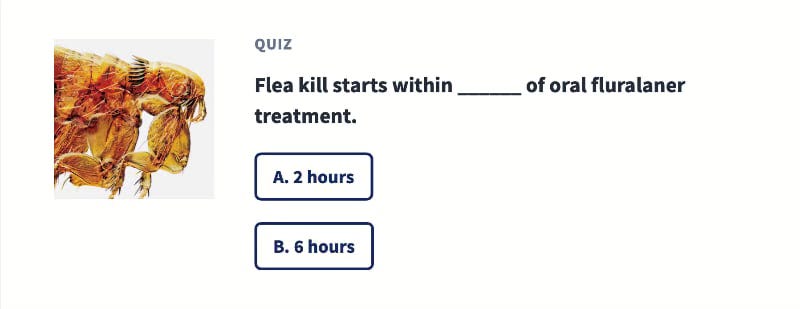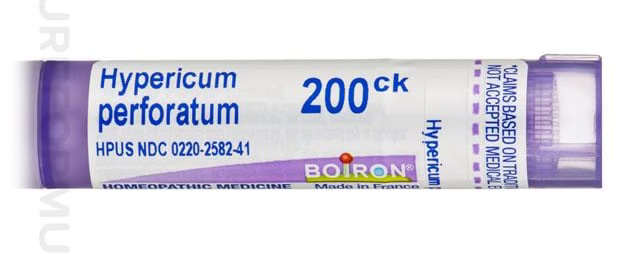Vital Animal News: April 14, 2024
Homeopathy FTW; Flea killer quiz; Allergies: We're #1!; Dogs help PTSD victims; Nerve injury remedy, and more
Homeopathy to the Rescue!
Alpha Enrollment closing
Killing Fleas Quiz
Allergies!! We’re #1!
Dogs and PTSD
Tasty Tips: Nerve Injury
Along the Natural Path
When Treatment Makes it Worse
[This is a reprint, as I feel it’s critical for you to understand. Especially because your vet doesn’t.]
Homeopathy to the Rescue!
Here’s a homeopathy case I shared with my Vital Animal Alpha homeopathy students.
A poor little Chihuahua plagued with the #1 reason dogs get brought to vets: The Itch. But then, after treatment came seizures, years later.
To make most sense of this, click above and take a few moments to read the case, then rejoin us here.
It's short. We'll wait.
… … …
I asked a simple question of my Alpha members: after reading the first sentence of this case, tell me what you think happened to this little Chi?
[If you're in a hurry, here's the first sentence: “Matilda is a 13-year-old Chihuahua who was put on Prednisone 10 years ago for severe itching, and then on Phenobarbital 2 years ago for seizures."]
In addition to studying acute prescribing for animals, my students get a broad background to help understand the workings of homeopathy and healing in general.
One of the many things we discuss in Vital Animal Alpha:
What are the possible outcomes for ANY treatment, natural or allopathic?
Disease outcomes: Only 3 are possible
What ever the treatment, from drugs to surgery to acupuncture to herbs to homeopathy to supplements, if we carefully evaluate, we’ll see one of these three results in every single case:
Cure
Palliation
Suppression
I touch on this in two episodes of the Vital Animal Podcast, # 24 and # 20 Each has an interesting homeopathic case from my own practice.
You can listen to those later, but stay with me here, now.
Here’s a quick review of each possible outcome.
-- Cure: the complete resolution of the disease, where the patient not only loses their symptoms but improves broadly and stays that way without the continued use of medicines or treatments.
Obviously, this is what you’d want for any animal, child, or yourself when sickness strikes, right?
-- Palliation: the patient is somewhat better during the treatment, but it cannot be stopped, or symptoms return. There’s clearly no deeper, broader improvement, just symptom subsidence.
The hidden reality is that, while under the palliative treatment, the chronic disease is gradually worsening. That often means drug doses need to increase or “stronger” drugs (e.g. antibiotics) are employed over time.
-- Suppression: the symptoms disappear quickly but things get more serious later, as the disease never left.
Surgery of a diseased organ is the classic example of the last one.
I shared a suppression case a few years back on my blog post, Tumor, But No Surgery? What Will People Think??
In that case, a benign (but admittedly unsightly) tumor was tossed into the waste bin (against my advice, but the husband “won”).
A couple months later, Caleb lost control of his rear limbs. Permanently.
Who won the contest?
So, which of these won the prize for my students?
Susan King, one of my long time Alpha students got it right: It was palliation.
The treatment (10 long years of steroids, palliating the itch) caused the seizures.
The two diseases are related in this case, though I doubt if anyone in conventional medicine would see the connection.
When you push a disease into a dark corner like the steroids did, it’s not gone.
Symptoms were hidden, sure.
But the disease continued to smolder.
And finally, the patient paid the price with a much more serious manifestation: epilepsy.
Far deeper, far more life threatening than disease that’s on the surface and merely bothersome and itchy, right?
Luckily, in this case, it appears a second remedy, used a few judicious times, cured her.
This is exceptional, in my experience.
The far more normal outcome for epilepsy would be needing several different prescriptions over time (always one at a time, however).
So, what’ll it be for you and yours?
Cure, palliation, or suppression?
Conventional medicine cannot cure (Modern Medicine’s Dirty Secret). It's not built that way, and that's painfully evident in chronic cases like The Itch.
Homeopathy can, in the right practitioner’s hands.
If you want to seek a homeopathic practitioner with the ability to cure, I've got a video on how to best choose a qualified one on my Recommended Resources page. Distance is not an impediment to this work.
Alpha Doors are Closing
Speaking of homeopathy, we’ve had a nice bunch of new students of acute veterinary homeopathy who’ve joined us in Vital Animal Alpha so far.
From all over the place!
They are busy taking in acute remedy lessons, discovering when and how to repeat a remedy or change it, what remedies are surprisingly great in acute animal illnesses (that aren’t likely to be even thought of in acute human homeopathy), and sharing stories and pics of their pack in our private discussion group.
Needless to say, our discussion group has been turned up a few notches!
Just a heads up so you don't get caught waiting too long:
Enrollment in Vital Animal Alpha, my premium monthly membership group, closes tonight, Sunday the 14th, at midnight CDT.
Because it’s chock full of useful info to help you wield this amazing tool called homeopathy in all things acute, I’d strongly suggest you jump in while the doors are still open.
At least try us out for a month.
You'll have full access to:
Our library of lessons on acute homeopathy (video, audio, and written)
Our private discussion group where I and fellow students wait to help you and hear of your challenges and successes in raising wildly healthy animals
A monthly live Q/A meeting with me and fellow members
It's a small investment for a potentially great return that’ll inform how you raise animals now and for generations to come.
Kill Fleas How Fast?
One of my veterinary newsletters offered up a quiz recently.
Even though I’ve never carried this potent poison (or any other flea killers that weren’t natural in my entire career), I knew the answer.
Because, when Bravecto first came out and I saw the brag, my first thought was,
OMG. I hope my readers are smart enough to see through this marketing and realize what this means for their pets!”
The sickening but correct answer was: 2 hours.
After giving your dog a pill, the fleas on her body start dying off in two freaking hours!
What’s more, their second touted “benefit” shouts,
“It continues to cause flea death for 12 weeks, after one dose!”
What’s wrong with this picture?
If it’s not immediately obvious, your pet’s blood is the carrier of this fast acting, long lasting poison!
I blogged about that when it first came out, here:
Bravecto: Summon Your Courage for This Killer
In that article, you’ll find people’s real experiences as well as ADE’s (adverse drug events), including um, well, death.
But here, I want to go back a step, prompted by the quiz article in Clinician’s Brief telling us, the rapt veterinary audience, just how bad these fleas can be.
You know, the WHY you want to sell this stuff to kill these bastards fast and have this one miraculous pill KEEP KILLING for weeks after one dose.
Flea infestations can cause much more than itching. Flea bite dermatitis or flea allergy dermatitis (FAD) is the most common dermatologic condition in dogs and cats. Affected animals are hypersensitive to flea saliva antigens, and 61% of dogs with FAD develop signs between 1 and 3 years of age.”
Wait. Flea allergy?
I was telling my Alpha members recently about how I had a first hand experience years ago with fleas.
I “dog sat” a puppy for someone on my mini-farm for a couple weeks. Rambunctious Golden Retriever, always zooming from point A to point B, happy, happy, and just living the joyous life a puppy should get to live.
One day, as I was petting Ralph’s belly, I noticed he was literally crawling with fleas.
Must have been at least 15 of them in close view, scurrying to better quarters as I parted the hair for a closer look.
Then it struck me.
I’d only seen flea allergic dogs before (FAD, as the article calls it). And they were miserable.
Ralph, on the other hand, was either unvaccinated or barely vaccinated and he Just.Had.Fleas.
No wild itch, no stopping in mid-stride to turn and attack himself, no burying his nose in his groin, breathlessly chewing and licking, no denuded rump, no oozing skin, none of it.
Why Aren’t Clinician’s Looking Deeper?
Do flea allergies (or all the countless other allergies you’ll find if you jump on “allergy testing”) just fall from the sky and land on your poor pet?
Had Ralph just dodged that bullet?
“The Itch” is, after all, for decades now, the #1 reason dogs see vets. (see next section).
No, the deeper reason, the ignored deeper reason, the Reason That Cannot Be Named if the profit mill is to continue for Dr. WhiteCoat is…
Vaccination!
Still looked at by most vets as at least harmless, and at best, the savior of all living creatures who they can get jabbed, most depend on this procedure for some 30% of their bottom lines.
The most egregious practices will push annual vaccines on you.
That’s just plain unsupported by “the science.” Worthless practice, say the immunologists. Doesn’t even work (but it sure is lucrative…)
Look Out Longer, Doc
If a vaccination doesn’t drop a pet in her tracks, and Sadie goes home and doesn’t fall apart in 48 hours, the assumption by my profession is, “All good. Our job is done here.”
But when we extend that watch period to a month, that’s when the problems start.
My brilliant homeopathic colleague from England, Chris Day, MRCVS (RIP now), shared his informal survey with us decades back.
He’d ask his clients who brought him an animal too itchy,
Q: When did this itchiness begin?
The answer, in some 75% of his clients?
A: It started a month or two after his puppy shots.
Valuable data, don’t you agree?
When Mr. Day presented this to the AHVMA meeting, we all started looking and asking the same question.
No surprise, we corroborated his mini-study, informal but potent as it was.
Ditch the Bomb, Watch the Vaccines
Well, I’ve been writing about this for years, and mentioning it in most every course I offer.
Even the professional associations came out against annual vaccines in the 90’s, as it was getting more talked about.
And guess what?
Did Dr. WhiteCoat change his bent for vaccinating because of this?
Maybe a few did, but it’s still estimated 60% are pushing annual vaccines, and I’m quite certain the youngsters are all still getting a 3-4 shot series, starting sometimes way to soon with the breeders (breeders: this podcast episode is for you, please listen: # 11 Breeders: Please STOP Doing This!)
That, right there?
It’s the main reason I write and teach YOU, the pet owner (horse owner/child’s parent…) to learn all you can about vaccines.
The very few vets who are aware of this are far outnumbered by those who keep on vaccinating everyone in their practice, never tying the event to the latter appearance of chronic disease.
Even the “holistic” vets, as I point out here: Vaccines and Vets: Is Your Holistic Vet Really Holistic?
So, in the end, it’s on you.
If you haven’t already, read my free series on vaccines, starting here.
And, if you want to go deeper, grab my low cost Smart Vaccine Alternatives course.
You can learn amazing protection that doesn’t involve vaccination.
And build health that makes killers like Bravecto a horror movie you can choose not to watch.
We’re Still #1!!
Well, this is timely.
This article, entitled “Spring allergies suck for pets too” brings us the news that what I wrote about allergies lo, these many years ago still holds true.
And Spring has nothing to do with it…
The data from pet insurance companies tell us the sad reality.
By the numbers: Pet insurance company Trupanion reports a 45% increase in allergy claims for insured pets in 2023 compared to 2019, with the data growth adjusted and measured on a per 1,000 pet basis.
And insurer Nationwide says allergies top the list of health conditions that prompt vet visits.”
Even worse, the bulk of these allergies are being treated with some of the most dangerous, side effect laden drugs on the market (which the author sees as the “answer” to this epidemic…of man-made disease.):
Dog allergy drugs Apoquel and Cytopoint have treated more than 20 million dogs in total since they were released in 2013 and 2018, respectively, according to parent company Zoetis.
Oh my.
If you want to read more, (pay special attention to the comments) my post on Apoquel will tell you how this drug “works” and will help you find alternatives to this drug. Many pet owners, after having lost an animal to its side effects, would like to see the maker, Zoetis, sued for all they’re worth.
Class action suit, anyone?
The AVMA president weighs in here as well:
It's hard to say whether allergies are indeed more prevalent or whether we're just "better at finding it and our pet owners better at seeking treatment," says American Veterinary Medical Association president Rena Carlson.”
Oh, please.
Like the sudden deaths of athletes, falling dead on the field?
Like the autism rate, rare when I grew up in the 50’s, now at 1 in 30 something vaccinated kids?
We just weren’t looking hard enough?
What to do?
The article concludes,
The bottom line: If you suspect your pet has allergies, take them to the vet immediately, Carlson says.
Be prepared for questions about your pet's age (younger pups might be more likely to have food allergies), evidence of fleas (which could indicate a parasite), when the itchiness started, and patterns in their environment or food.”
Well, at least they got one part right:
Ask yourself (or see your vet’s records, if it’s been a while) when the itchiness started.
And, if you don’t want side effects worse than The Itch itself, I’d suggest you make your immediate vet visit a homeopathic one.
You want to seek CURE, and as you might recall, conventional veterinarians don’t know how to effect that.
That vet visit may need to be long distance. No matter, I did this effectively for years in homeopathic practice.
And, as always, be smart about vaccines.
Dogs + PTSD Veterans
Rescue dogs all too often lead lives of quiet desperation.
And veterans of war all too often lead explosive lives, marred and defined by PTSD (post-traumatic stress syndrome). Suicide is way too common in this group.
What if there was a way to heal both groups with one stroke?
After reading a brief mention of research indicating this combo was having amazing results, I searched a bit further and found K9s for Warriors.
Wow. Just wow. This is the mother lode of hope and healing.
I was in tears listening to some of these success stories. Vets whose lives had completely turned around since getting a trained service dog who knew when an episode was about to take over and aborted it, as only the power of canine love could.
I alerted my Venjenz co-founder, Jason Donas, a veteran himself who’s always keeping an eye out for ways to support causes like this.
He, too, was blown away and I’m sure something deeper will be fostered between these two companies.
The early research is showing the dogs pick up chemical signals in the breath of their charges.
When the PTSD is about to cause a storm, they bring the veteran back from the brink.
Others are just “there” as soon as the vet wakes up, making his or her whole day brighter.
So, enjoy a bit of human + dog interest and spread this around, if you’re so inspired.
Tasty Tips: Nerve Injury!

While most come to homeopathy through the “gateway drug” called Arnica montana, supreme remedy for bruising injury, there’s another you should know.
(This is one in our cadre of homeopathic “friends” we learn about in Vital Animal Alpha)
When acute injury is to nerve rich areas, while arnica will help, the better choice is Hypericum perforatum.
Nerve rich?
Tail caught in car door
Thumb slammed by hammer
Teeth injured or pulled
Tail bone fall
Just like you’d use arnica, a 30C potency will do, and a 200C even better, if you can find it.
If it’s you or a fellow human, drop a pellet under the tongue and let it dissolve.
Repeat as needed up to a few doses given every 15’
Same dose for a child or a 200 lb adult, such is energetic homeopathic medicine.
Chihuahua or Great Big Dane, ditto.
If it’s for an animal, and you want the fastest route possible (to quell the screaming and bring immediate relief), you’d just:
1. load that pellet into the cap of the vial you’ve poured it from, point Sadie’s head way up, drop her lower jaw, and fire that pellet to the back of her throat.
Close her mouth, stroke her throat to encourage swallowing, and repeat as needed.
If you’ve got more time, say for those next couple doses, crush a few pellets, mix the powder into a 1/2 glass of water, and give a dribble of this from the spoon.
If you give a few doses close together (we often do every 15’ for 3 doses in tough situations), you’d then slow down and redose if the pain returns.
This, like all homeopathic remedies that “fit” the illness, will spur your (or your animal’s) own healing abilities such that the pain will soon subside and healing will move apace.
Amazing what you can do with this 200 year old system of medicine!
Along the Natural Path
Ah, summer. The dogs are itchy, the people are sweaty, the roads dusty, and the clothes on the line dry in an hour, tops. 101º for a high, and a scarce few cool mornings are left until I pack off to the foothills of the Himalaya in a week.
Winter wheat harvest is in full swing in the village around me. The cutting by hand seems mostly to be done by women, but whoever is doing it is usually wrapped well against the pervasive dust, and the quick, quiet whischh, whischh of the sickle is only perceptible if they’re close to the road I’m biking down.
From grounded loose piles, it’s brought to order in manageable bunches to bring to the threshing tables, usually central to the courtyard or adjacent to the homes.
I came upon a crane on my way home, fishing hopefully in the irrigation canal. As I’d feared, reaching in my pocket to grab a snap, stopped on the bank atop my bike, he felt threatened and took to the wing, circling in grand sweeps, as he was obviously working a productive spot and didn’t want to forsake it.
It was all too fast to capture with my phone until he lit on a tree top on the opposite bank.
Well, that’s what I know from this side of the globe.
I hope you’re getting out with the family, furred and un-, and enjoying the call of Nature, as she swings from season to season. When I next write, I should have some lovely mountainous shots to share and a look inside an old growth forest that restores me each Spring, far from the scorching plains of Uttar Pradesh below.
Carry on in making wise choices for those innocents in your care, and if we get to meet in Vital Animal Alpha, all the sweeter. We’re looking more international this time around, as someone from Uruguay and another from Mexico have joined us to learn acute homeopathic medicine for their packs.
See you in a fortnight,
Will Falconer, DVM, Certified Veterinary Homeopath
















I have a question about tick bites and Ledum. I know it can be very effective at preventing tick borne illnesses. My question is which level of dilution is best? My dog is a Golden Retriever and weighs about 62 lbs. I read about a few protocols using Ledum 1m, 200c, 30c and Aurum Arsenicim 200c. Possibly adding other homeopathic remedies if symptoms present. I want to treat her prophylactic. Any guidance would be most welcome. Thank you! 🙏🏻
Hi Dr. Falconer,
I do not see this as palliation, but as suppression. The psora sx were suppressed and then seizures began. Please (and I'm not asking this in an obnoxious way), explain why it isn't suppression.
Thanks!
Cara